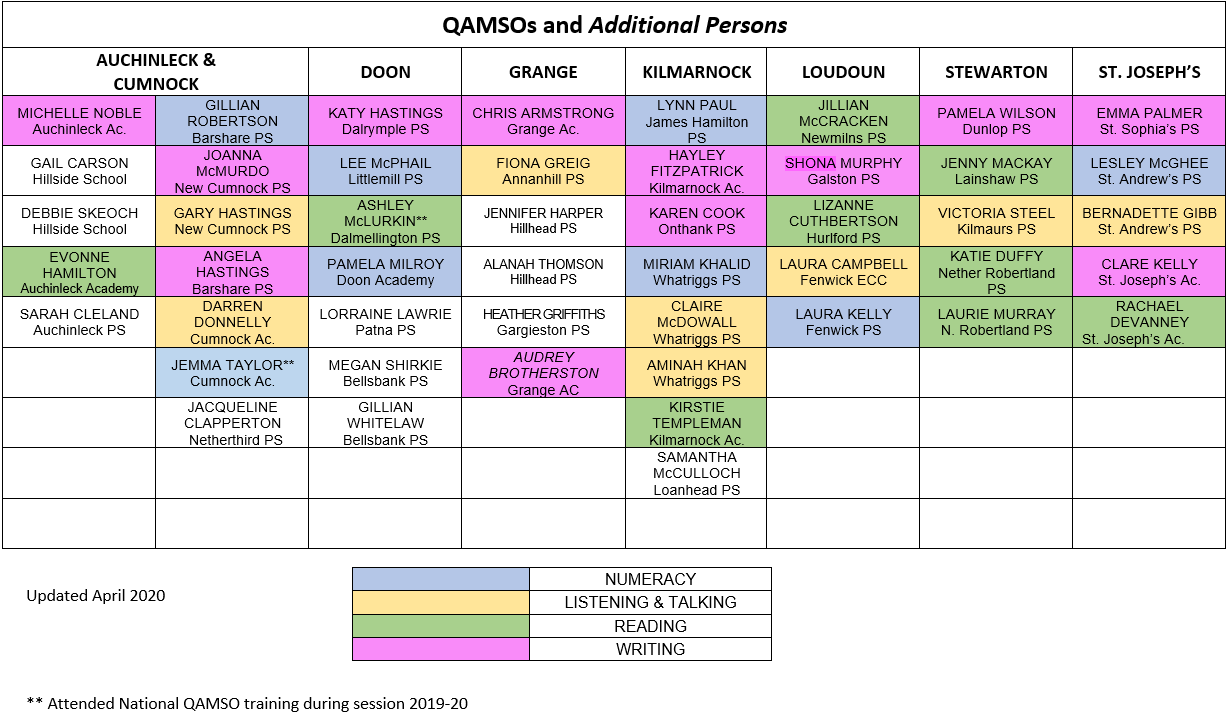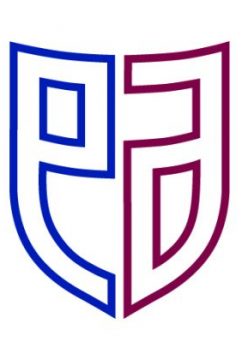This section outlines the supports available at school, education group and authority level in relation to planning, learning, teaching, assessment and moderation.
Gail Elder (Literacy Education Manager) and Robert McCallum (Numeracy Education Manager) are the Assessment Coordinators for East Ayrshire and are members of the South-West Educational Improvement Collaborative (SWEIC) BGE workstream and regularly attend national assessment coordinator meetings organised by the National Improvement Framework Team. The role of the assessment coordinator is to share key national and regional key messages and form local authority policy and facilitate and deliver and facilitate local, regional and national professional development in relation to the Planning, Learning, Teaching, Assessment and Moderation Cycle. It is also the role of the Assessment Coordinator to support the work of the Quality Assurance and Moderation Support Officer (QAMSO) network.

Within the local authority we have extended the QAMSO network across each of the education groups. The QAMSO Map provides details of the QAMSOs working in each of the education groups. The QAMSOs role is to support individual schools and work collaboratively across their education group to support practitioners in all aspects of the Planning, Learning, Teaching, Assessment (PLTA) and Moderation Cycle by:
• providing ongoing support to schools/Education Groups in moderation as appropriate
• promoting and supporting the work of the QAMSO team across their Education Groups and the authority
• providing regular updates to Head Teachers on QAMSO work
• Updating local resources in line with national publications
A number of East Ayrshire QAMSOs have volunteered to be part of a SWEIC team working on developing a consistent BGE moderation programme across the authorities. East Ayrshire continues to be well represented in this team providing support for colleagues across the SWEIC.
Each school and education group will plan moderation activities in relation to their improvement priorities. The QAMSO network is there to support any related moderation activity and in some cases may lead activities. Each Education Group should agree time and a focus for moderation activities. A minimum of two opportunities throughout the school year would be helpful. Education Group Moderation priorities (link to EG plans will be added soon) were derived from the February 2019 inset day for session 2019-20 and discussion with the QAMSO team and Assessment Co-ordinators.
Teachers who are taking part in Education Group moderation are expected to bring plans and appropriate evidence, based on their EG focus and to be prepared to discuss them. These should have been moderated within the school already and will then be moderated at education group level to confirm teacher judgement within an establishment. It is recommended that teachers present their own moderation evidence. Accompanying moderation paperwork will be provided at the Education Group events.
Education Scotland currently advise teachers to submit for moderation of progress, or achievement of a level, evidence from one learner. The professional dialogue around such samples is to support the verification of teacher judgement.
Through providing opportunities for practitioner collaboration at school, education group, local authority and national level we aim to increase opportunities for all practitioners to engage in moderation activity across all themes in the PLTA cycle . By embedding collaborative approaches to the planning, learning, teaching, assessment and moderation cycle we aim to increase the confidence and reliability in our assessment judgements.

